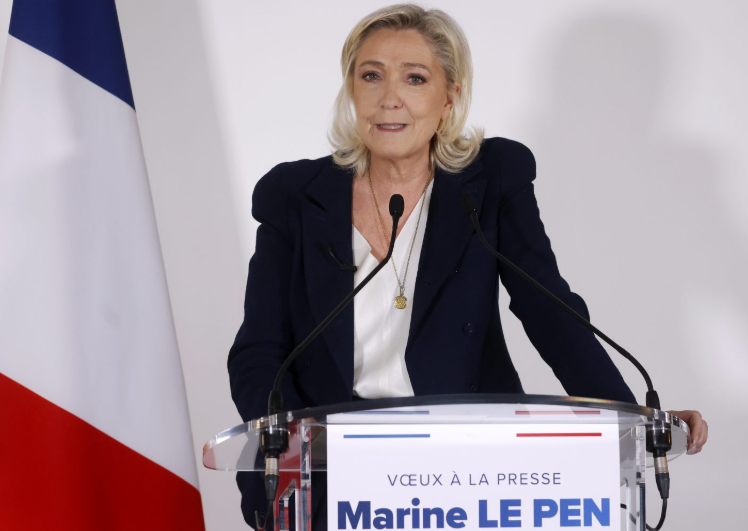New Delhi: Marine Le Pen, the leader of France’s far-right National Rally (RN) party, has been sentenced to four years in prison and banned from holding public office for five years.
This landmark ruling, delivered by a Paris court, disqualifies her from running in the 2027 French presidential election, a race in which she was considered a strong contender. The ban remains in effect even if she appeals, marking a significant shift in the French political landscape.
The court found Le Pen guilty of embezzling European Union funds, a charge stemming from allegations that she and her party redirected EU parliamentary funds meant for aides to pay party staff between 2004 and 2016.

While the court acknowledged that Le Pen did not personally enrich herself, the ruling described the scheme as a “democratic bypass” that deceived voters and the European Parliament. Several of her close allies were also convicted, including Thierry Légier and Nicolas Bay, who received suspended sentences and fines.
ALSO READ: Iran places missiles on alert after Trump’s threat over nuclear deal
Le Pen has condemned the verdict as a politically motivated attack aimed at eliminating her from the political arena. “This is political death,” she stated, warning that the ruling disenfranchises millions of her supporters.
Her protégé, Jordan Bardella, who is now seen as a potential RN candidate for 2027, echoed her sentiments, calling the ruling an “attack on democracy.” Hungarian Prime Minister Viktor Orbán also voiced his support, stating, “Je suis Marine!” in solidarity.
The ruling has sparked reactions across the political spectrum. French Justice Minister Gérald Darmanin described the case as a “serious and lasting attack on democratic life.”
Meanwhile, critics argue that the verdict underscores the importance of accountability in a democracy. The Kremlin also weighed in, accusing European governments of undermining democratic norms.
ALSO READ: Jakub Mensik stuns Novak Djokovic to claim Miami Open Masters Title
The ban on Le Pen comes at a critical time for French politics. With President Emmanuel Macron term-limited and unable to run in 2027, the race for the presidency is wide open.
Le Pen’s absence could reshape the electoral dynamics, potentially benefiting centrist and left-wing candidates. However, her party’s growing support in recent years suggests that the RN will remain a formidable force, even without its longtime leader.
This case serves as a reminder of the challenges democracies face in maintaining transparency and accountability. As France prepares for its next election cycle, the implications of this ruling will undoubtedly reverberate across its political landscape.

